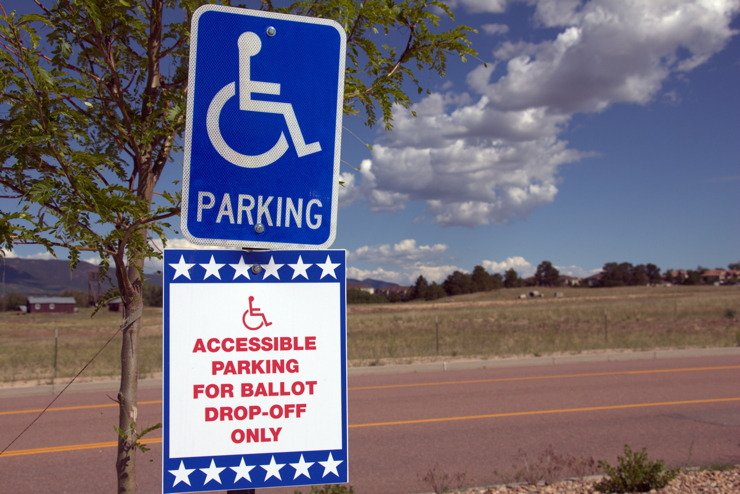Oregon steps up to help people with disabilities vote during pandemic

By Diane Bernard, Oregon News Service
SALEM, Ore. (KTVZ) -- Advocates for people living with disabilities say Oregon has taken some major steps to ensure that everyone has the help they need navigating the voting process - even during a pandemic.
Tom Stenson - legal director at Disability Rights Oregon - said the state, with its all-mail-in ballot system, is now allowing election workers to visit nursing homes and long-term care facilities to help folks fill in their ballots.
This ensures that there will be fewer mistakes that could otherwise keep a person's vote from being counted.
"One thing we learned while in Oregon is that it's really, really important to educate people on exactly what the procedures are in your state," said Stenson. "So that there isn't a high error rate, with people not signing forms or not putting them in the right envelope."
He said it's always been difficult for people living with disabilities to vote, and officials are concerned the pandemic is making the process harder for some.
There's more voting information on the Disability Rights Oregon website.
Mail-in voting can be especially challenging for people with visual impairments, or those who don't have the motor skills to be able to write, Stenson pointed out.
He said county clerks' offices have options to help, including offering an accessible, electronic version of the ballot that allows the voter to use software that reads it out loud.
"People can also, they can order a large-print ballot," said Stenson. "So if somebody has low vision, they can get a large-print ballot that they can view with their glasses or magnifier, or whatever they use to help them read."
It's estimated that more than 38 million Americans with disabilities will be eligible to vote in the November election. This includes seven million with visual disabilities.
Stenson pointed out that if even small numbers of these voters are excluded, it could impact the election.
Support for this reporting was provided by the Carnegie Corporation of New York.